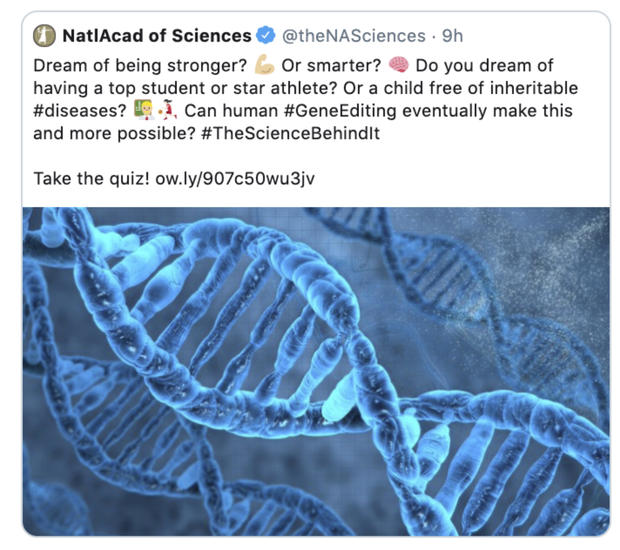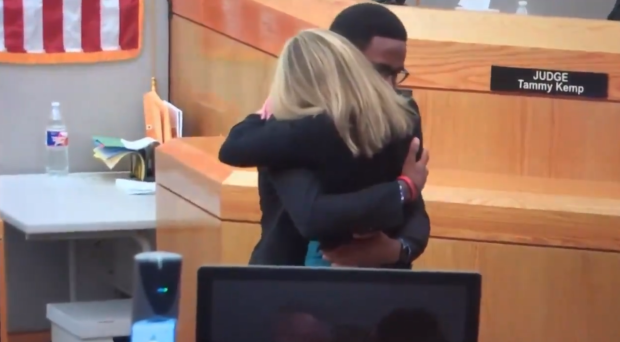A government-funded group that’s leading efforts to set standards for gene editing has pulled a video it posted in the wake of concern about how it portrayed the ethically dicey science and the possible use of the science to make designer babies.
The National Academy of Sciences posted the video earlier this week along with a tweet it later removed.
The tweet read: “Dream of being stronger? Or smarter? Do you dream of having a top student or star athlete? Or a child free of inheritable #diseases? Can human #GeneEditing eventually make this and more possible? #TheScienceBehindIt Take the quiz!” It included emojis of a brain, bulging muscles, a professor and an athlete.
Trending News
“I am disappointed by this,” said Alta Charo, a University of Wisconsin, Madison ethicist involved in past academy panels on gene editing. She said the tweet and video could add to misunderstanding about gene editing’s most important uses or wrongly suggest that it’s possible now to bestow traits like intelligence.
The video gives the inaccurate impression that gene editing can give positive traits without any potential downsides – “the definition of hubris,” said Harvard Medical School dean Dr. George Q. Daley, who also has been involved in academy work. “We are not there yet.”
Making designer babies has long been feared by opponents of gene editing that alters DNA in embryos, eggs or sperm, in part because such changes can pass to future generations. Last year, a Chinese researcher’s claim to have done this in twin girls was widely denounced and led to new calls for oversight. The academy and the World Health Organization separately formed scientific panels to consider that.
The new video is part of a series aimed at improving public understanding of the science behind complex issues, said academy spokeswoman Molly Galvin. The tweet was replaced by one noting the academy’s position that gene editing should only be done to treat or prevent disease.
Wednesday night, after The Associated Press published a story on the matter, the group removed the video and issued a statement saying the video “left the misimpression that the use of genome editing for the ‘enhancement’ of human traits is permissible or taken lightly,” which was not the intent. “We apologize for any concern or confusion we caused.”
Galvin did not respond to requests for more information, such as whether public money paid for the video. The academy is a private group Congress created to advise the federal government, and about 85% of its funding comes from there.
The video includes a clip of gene editing pioneer Jennifer Doudna of the University of California, Berkeley, discussing the science.
The video opens with people putting notes on a diagram of a body while saying “I guess I would like to be taller,” “I would like to change body fat,” “let’s prevent baldness” and “take away dyslexia.”
The script says: “This type of gene editing is still in the realm of science fiction. But it might not always be.” It says five “everyday people” were asked to consider pros and cons.
One man says, “create the perfect human being … that’s pretty cool,” while others shake their heads and say no.
“You want the best qualities to be put into your offspring,” one man says. “I want my child to be the best version of not just me but him or her. So if I can control that or have some control over that, I don’t mind it. I don’t hate it.”
The video and tweet suggest “a cavalier attitude toward this serious topic,” said Paul Knoepfler, a University of California, Davis biologist who criticized them on Twitter.
University of Minnesota bioethicist Leigh Turner said the video portrayed serious issues with a “reality television feel” and “in this bubbly, superficial way.”
“I’m trying to imagine what was going on in their minds,” he said of those responsible for the video. “It’s kind of funny and cringe-inducing at the same time.”


